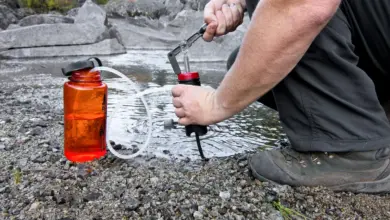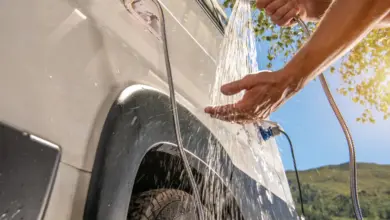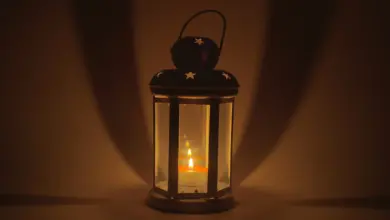Covid Precautions To Take While Camping
Are you planning to go on a camping trip to get out of home after sitting idle for almost two years? Here are the covid precautions to take while camping.
As per the Centers for Disease Control and Prevention, the outside appears to be the most secure place while the COVID-19 epidemic is still strong! The CDC says that being physically fit and active is one of the most effective methods to keep your body and mind healthy.
Although the government encourages individuals to visit parks and campgrounds, a few ground rules must be followed during the pandemic. You will have to continue to ensure proper personal cleanliness and social separation throughout this time.
Camping is a fantastic option right now if you’re willing to take the necessary steps to keep yourself and others safe. Because of the epidemic, many individuals have been forced to stay inside or suffer from worry or despair.
Being in nature and getting some fresh air might help you get back on track. It has been shown that spending time in nature improves immunity and combats depression and anxiety. To guarantee a safe camping experience this year, be sure to follow the following safety precautions.
Covid Precautions To Take
Stay close to home
Camping at a nearby campsite may help protect you from the COVID-19 virus. Camping nearby allows.
The Centers for Disease Control and Prevention also recommended that you call the campsite ahead of time to find out whether the restroom amenities are accessible or not. By doing so, you’ll be more prepared and less likely to be caught off guard by unpleasant situations.
Be smart about food, but don’t stress it
According to the CDC, there is presently no data to suggest COVID-19 spread via food. Although if you want to be extra cautious, ask everybody to carry their respective food and prepare their meals. In addition, continue to maintain a safe distance while dining and cooking and refrain from sharing plates or utensils with others.
The CDC recommends that if you want to have a group dinner, just one individual should serve the dinner so that no one gets the disease from touching the serving equipment. When it comes to snacking, avoid the household bag of Pirate’s Booty and opt for single-serve containers instead.
Wash your hands regularly
If you’ve become used to hearing this, basic cleanliness is vitally essential in preventing the transmission of COVID-19 as well as other pathogens. Going to the campsite is no different.” Anytime you stop at petrol stations, put on your mask, follow social distancing, and wash your hands just as you would if you were going to the supermarket.
If you don’t wash your hands, you run the danger of acquiring COVID-19 bacteria from objects you’ve handled. You enhance your chances of obtaining COVID-19 by unintentionally touching your face.
Avoid busy times
Summertime and holiday periods are often busy at campgrounds. Although, throughout the week, they tend to be a lot calmer.
Camping in a busy time of year increases your chance of getting COVID-19 since you’ll be exposed to other people who may have the illness but may not be showing any symptoms at all.
Sleep in your separate tent
While tents include a variety of exposed flaps and panels to allow for airflow, if you are camping with somebody who isn’t from your inner group of acquaintances, make sure you sleep in distinct tents. Preserve a minimum of six-foot separation between tents and promote social distance.
An official request has been made to the public by the National Park Service, which has requested the public’s assistance in implementing social distancing techniques when visiting parks.
When factors such as sunshine, wind, and temperature may help diminish COVID’s risk of transmission and pathogenicity, the danger of contracting the virus while outside has not been established. As a result, it is preferable not to take any risks.
Keep your camp crew small
Even if you’re anxious to get out of the home and interact with friends and family you haven’t seen in a few months, now may not be a good time to partake in an RV with a large group of individuals who are not members of your family. Instead of a large camping party, imagine a small, private outing in nature.
Apart from the fact that huge groups make social distancing more difficult, several states and campsites have imposed limits on the number of individuals who may be accommodated at a campsite. According to a news statement from Colorado Parks & Wildlife, gatherings of more than ten people will be requested to disperse and may lead to the loss of camping rights for anyone involved.
Don’t leave your trash behind
This fundamental camping regulation is rendered even more vital amid coronavirus outbreaks, when many campsites have closed their trash cans and have fewer employees available to remove waste receptacles, making it even more critical.
Bring your garbage bags and be prepared to carry out everything you’ve brought into the premises.
Put on a mask
Before setting up camp, discuss with your traveling companions the appropriate times and places to wear a mask. During the day at your camping site, which should be at least 100 feet away from other closest campers, you and your family can remove their masks.
However, they must be worn at all times once you depart to get anything from your car or when communicating with a camp attendant.
And although various jurisdictions (and even different campsites within the same state) have varying rules regarding mask use, masks have shown to be among the most successful preventative measures in the fight against COVID-19 spread.
Keep in mind that the 6-foot restriction is still in effect
Yeah, even in the presence of nature, you must maintain a minimum six-foot distance from those with whom you do not reside. That buddy who hasn’t seen you since March isn’t going to be able to snuggle up to you just because you’re outdoors in the clean air.
If you do not keep social distance, you run the chance of being in close contact with somebody who may be infected with the illness but is unaware that they have it.
If you’re camping with folks who you didn’t quarantine, you should be cautious. “Keep a minimum distance of 6 feet between you and them, as the Centers for Disease Control and Prevention suggests if you are unable to maintain that distance, use a mask.
Face coverings are recommended by the Centers for Disease Control and Prevention during times of social isolation.
Stock up
Although most campsites adhere to the Centers for Disease Control and Prevention’s recommendations for cleaning facilities, it is always best to be cautious than sorry.
You cannot know when and how frequently the amenities were cleaned or how properly they were cleaned since there are no records.
“Whenever you’re heading to a camping site, it’s crucial to be prepared with items such as face masks, hand sanitizer, disinfection wipes, and hand soap. Once you are at the campsite, bear in mind that individuals may be arriving from all around, and you have no way of knowing who or what they’ve been exposed to along the way.
Why choose outdoor activities like Camping?
Close contact (within six feet) is the primary transmission mode for the COVID-19 infection (2 meters). Pulmonary particles released into the air by sneezing, talking, breathing, or laughing are the primary means the virus spreads.
These small droplets or aerosols that linger in the air for minutes or hours, especially in tight settings with limited ventilation, may spread the COVID-19 virus.
Fresh air continually moves, scattering these particles while you’re outdoors. So if you haven’t received a COVID-19 vaccination, you’re unlikely to inhale enough pulmonary droplets carrying the COVID-19 virus.
Due to the pandemic, numerous interior and exterior activities were restricted. However, once you have received the complete vaccination, you may resume these activities. In places where new COVID-19 cases are reported often, the CDC advises using a face mask in public or directly contacting persons who have not been vaccinated.
The second dosage of an mRNA COVID-19 vaccination or a single dose of the Janssen/Johnson & Johnson COVID-19 vaccination is deemed a complete vaccination two weeks following the first dose.
If you are not immune to the COVID-19 virus, you are less likely to get it if you participate in outdoor activities close to your home and have enough distance between you and others.
Aside from the obvious health benefits, there are several other advantages of spending time in nature. There is a sense of well-being and calmness that comes from this practice.
A Few Final Words
Take care of yourself and those close to you while the COVID-19 epidemic proceeds. Measures such as frequent hand washing, refraining from touching your face, and keeping a distance of no closer than six feet (two meters) from people, as well as using a mask in busy places or at big gatherings, should be used if you’re not completely vaccinated.
If you follow the instructions set out by the Centers for Disease Control and Prevention, Camping may be an enjoyable recreation during this time of the pandemic. Camping is a relatively low-risk pastime right now if you keep your boundaries, wear a mask, and practice excellent hygiene.
Please let us know if there’s anything you think we’ve missed or if you have any suggestions for how we can improve this guide. Please share it with others and mention us on your social networking sites if you appreciate the information.








